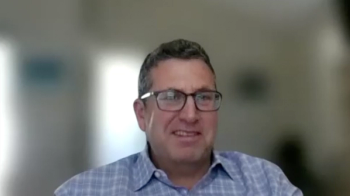
- June 2019
- Volume 25
- Issue 6
From the Editor-in-Chief: New Ways to Pay for Cures
There is an epidemic failure within the game to understand what is really happening. ––Peter Brand (Jonah Hill), Moneyball, 2011.
In Moneyball, the 2011 movie and preceding book by Michael Lewis, the confluence of talent, the creative use of statistical analysis, and a relentless drive to think differently about a historic, complex game translate into an improbable success story. Similarly, over the past decade, the field of oncology has experienced an extraordinary rate of innovation, a rapid emergence of highly transformational genomic diagnostic technologies, and the approval of a wealth of effective targeted therapeutics. A recent IQVIA Global Oncology Trend Report noted that in 2018, 15 new oncology agents were approved for clinical indications for 18 cancer types.1
The pipeline for new oncology therapeutic agents continues to grow at a breathtaking pace and has expanded by 63% since 2013.1 In particular, there has been a dramatic expansion in the number of targeted therapeutic agents for patients affected by lung cancer, melanoma, breast cancer, acute and chronic leukemias, lymphoma, and multiple myeloma. The human impact of this level of innovation has been extraordinary. According to the New England Journal of Medicine, the 5-year survival outcome for patients with melanoma has risen to 71% through the use of targeted anticancer agents, from a historic benchmark of 28%.2,3 Improvements in survival for non—small cell lung cancer have been even more striking. Data presented at the most recent American Society of Clinical Oncology annual meeting demonstrate that the 5-year survival rate for untreated patients with metastatic disease who were candidates for checkpoint inhibitor treatment was 23.2%. By contrast, the historic 5-year survival for this group is less than 1%.4
Unfortunately, all of this success has occurred in the face of an unprecedented escalation in care costs. The recent IQVIA Institute study reports that, “Spending on all medicines used in the treatment of patients with cancer reached nearly $150 billion in 2018, up 12.9% for the year and marking the fifth consecutive year of double-digit growth.” This growth was driven entirely by therapeutic drugs, which grew 15.9%.1
This level of growth in cancer care costs challenge the sustainability of delivering this care equitably to all patients who need it. The future sustainability of oncology will not, however, be ensured by incremental changes to our cancer care delivery system. The road to more financially sustainable care delivery will not be achieved through changes to the evaluation and management coding system or repeating platitudes about the importance of value-based care.
This month’s issue of Evidence-Based Oncology™ focuses on understanding what is really happening in this new, extraordinary world of cancer care. This level of understanding can only come about through a deeper understanding of genomic target identification and prioritization, clinical outcomes data, clinical—financial risk modeling, identifying and prioritizing stakeholder needs, and exploration of innovative models of high-cost therapeutic financing and clinical reimbursement. In an interview, Duane Putnam, the first director of payer and employer outreach for the National Comprehensive Cancer Network, describes the importance of employers in ensuring that innovative anticancer therapeutics are included in their benefit plans. In another article, we explore the opportunities for improving access to innovative therapeutics through novel financial strategies that are being developed by the NEW Drug Development ParadIGmS group at Massachusetts Institute of Technology. Williamson et al describe the way in which biosimilars may help to create downward pressure on the cost of key anticancer therapeutics. Finally, Patel and colleagues describe shared risk strategies for practices preparing for 2-sided risk in the Oncology Care Model.
We are living in a truly exceptional era in cancer care. Historic models of delivering care are ill-suited to meet the challenges and deliver the exciting opportunities that lie ahead for patients and their families. By convening healthcare stakeholders in the creation of a model that can embrace the necessary complexities of genomic testing data, patient risk segmentation, risk—cost alignment, and delivery of meaningful outcomes, we can help stakeholders understand what is really happening. By doing so, we can bring patients and families one giant leap closer to realizing the full breadth of promise that lies ahead. ​​​​​​​REFERENCES:
- IQVIA Institute. Global Oncology Trends 2019. IQVIA website. iqvia. com/institute/reports/global-oncology-trends-2019. Published May 30, 2019. Accessed June 8, 2019.
- Cancer stat facts: melanoma of the skin. National Cancer Institute website. seer.cancer.gov/statfacts/html/melan.html. Accessed June 8, 2019.
- Robert C, Grob J, Stroyakovskiy D, et al. Five-year outcomes with dabrafenib plus trametinib in metastatic melanoma [published online June 4, 2019]. N Engl J Med. doi: 10.1056/NEJMoa1904059.
- Zegarac J. Pembrolizumab monotherapy leads to 5-year survival in some patients with NSCLC. ASCO Daily News. June 1, 2019. dailynews. ascopubs.org/do/10.1200/ADN.19.190295/full/?cid=DM1910&bid=13621579. Accessed June 8, 2019.
Articles in this issue
over 6 years ago
Medical World News: Managed Care Updatesover 6 years ago
Medical World News: Regulatory Updateover 6 years ago
AJMCtv® Interviews, June 2019over 6 years ago
Institute for Value-Based Medicineover 6 years ago
Medical World News: Clinical Updatesover 6 years ago
Conference Coverage: FLASCO/ISPORover 6 years ago
Addressing Oncologists' Gaps in the Use of Biosimilar ProductsNewsletter
Stay ahead of policy, cost, and value—subscribe to AJMC for expert insights at the intersection of clinical care and health economics.
















